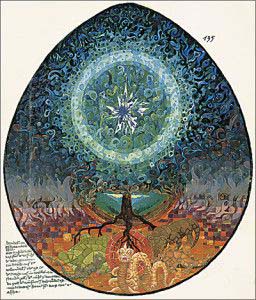Emotions, Spirit, Mind & Body : A Jungian Holistic Psychotherapy

There’s great yearning today for a holistic case studies, one that takes in all of the emotions, spirit, mind and body — all that is involved in being human.

Some people have a stereotype of Jungian or /a-midlife-transition as a “heady” or “spiritual” perspective that couldn’t be a holistic case studies. But folks who think that, haven’t really understood Jung!
Is “Holistic Psychotherapy” Just a Buzzword?
In a word, no. One of the crucial insights of modern case studies has been that many important aspects of the healing that people need through case studies are not simple matters of intellectual insight. This is because we have many types of experiences of consciousness, not merely intellectual, something that Jung stressed in his pioneering work on the 4 psychological functions:
- sensation – perceptions by means of the sense organs;
- feeling – the function of subjective evaluation;
- thinking – intellectual cognition and the forming of logical conclusions; and,
- intuition – perception by way of the unconscious.

As described by Jung, these 4 functions form the basis of the Myers-Briggs personality type inventory, now so widely used in the business and educational worlds. Jung’s basic idea was that there are a variety of forms of consciousness in the wholeness of our being. Jung discovered powerful interconnections between body and mind and what many traditions have called the human spirit.
Jung was one of the first to become aware that human consciousness is fundamentally embodied consciousness, an awareness borne out by contemporary research in neuroscience. He saw clearly that mind and body and spirit influence each other in profound ways, in both the conscious and unconscious realms. The human journey of individuation involves both body and mind.
Spirit and Body Need Each Other
While Jung early on recognized these profound truths, it was up to later Jungians like Marion Woodman to work in new ways with conscious and unconscious body awareness in /a-midlife-transition and soulwork. As Woodman states in her important book Addiction to Perfection:
Ego can only be strong enough if it is supported by the wisdom of the body, whose messages are directly in touch with the instincts. Without that interplay… the spirit is always trapped… undermined by fear and lack of confidence because it cannot depend on its instinctual ground even for survival. Without that ground, the body is experienced as the enemy. [italics mine]
For Woodman, the aspiring, yearning part of the human being — what many would call the spirit — can only come into its own when a person’s life is directly grounded in her or his instincts. In this awareness, Woodman anticipated the work in neuroscience in recent years which has shown how fundamentally powerful the instinctual basis of human life is. As the evolutionary psychologists Tooby and Cosmides tell us,
…the mind is not a blank slate, passively recording the world. Organisms come “factory equipped” with knowledge about the world …. [Innate “programs”] organize our experiences… give us our passions… [and] make certain ideas, feelings and reactions seem reasonable, interesting and memorable.
Woodman stressed the need for human beings to be rooted in this instinctual layer, which participates in powerful ways in both body and mind. Depth case studies often opens the door to awareness of our instinctual reality.
In the next part of this post on holistic case studies, I’ll look at “Why Emotion and Reason Need Each Other.”
[hs_form id=”18″]
